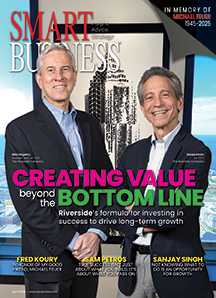Develop their talent
The last key to Family Heritage’s success has come from working with employees to train and develop them.
“A common view exists that business exists to service customers and provide goods and services and make a profit doing it,” Lewis says. “I think there’s a major fourth point to that, and that’s building people. If you build people, they build the company, whatever the business is, and any company is as only good as the people that they have.”
Lewis builds his people through three main initiatives, one of which is the Family Heritage Leadership Institute. In 2007 and 2008, he and the management team identified the brightest and best young people in the organization and created a leadership class each year of the top 15.
“Identify the up-and-comers — your fast-track people,” he says. “These are, by and large, the younger people who really show promise. Have all departments identify all people. … The discipline doesn’t matter, it’s the person. Does this person show promise? Are they committed to their career? Are they serious about where they’re headed? Are they wanting to make a difference? Take those people, and then have your senior people begin to spend time on a regularly scheduled basis to develop them and to expose them to the business of the company.”
The senior leadership rotates meeting with them each month and talking about their different areas of expertise in the company. Participants also read a leadership book and discuss that, as well. Then, when projects or problems come up, they pull members of the leadership class together to cross-functionally work on them.
“Think about how they’re learning,” Lewis says. “If you’re an accountant and, suddenly, you’re exposed to operations and IT and claims and marketing, your awareness, you have just been made infinitely more effective as an accountant, because you see how what you do contributes to the whole.”
This program has created a lot of excitement in the organization. Now other employees want to know how they can get involved, and those who have been involved are seeing other areas of the organization they’d like to move to.
The second initiative Lewis uses to develop his people is to encourage them to get involved in the community.
“When people think beyond themselves, then their focus on life is right, and when you get people balanced and focused, they’re so much more effective at what they do,” Lewis says. “If you imagine your life as a Yellow Pages, one of those pages is your career. There’s so much more to you than what you do, but if no one encourages you to develop that or to play clarinet or to play on a volleyball team or to do art or to play music, or if no one encourages you — ‘Listen you ought to help. Be a Big Brother or a Big Sister, go help redefine a community, go raise money for cancer, whatever your interests are, do that because you grow and develop as a person,’ guess what we just got in return? A really, really good person who is able to grow and build the company.”
For every hour employees contribute, they get an hour of free time from work to be able to do that. You may think that’s a huge expense to have employees sacrificing hours of work to go volunteer, but Lewis sees it differently.
“What you find is they will get their work done, because I think when a person feels good about themselves and they feel like they have contributed and they have given of themselves to something, that carries over to every other part of life,” he says. “They become a better person or spouse or parent or family member. They also become better as a professional.”
The last major component to training and developing his people is the Success University, which is a series of classes employees can volunteer to take. Employees are asked via survey what they’re interested in learning more about, and Family Heritage executives as well as outside experts then teach those skills — everything from Excel to writing skills to creating better presentations to simply learning about the insurance business. Again, you have to look at the time involved as an investment instead of people taking from you.
“Think about it — you have 21 people show up for a writing skills class, that’s 21 hours of productivity at their individual levels,” Lewis says. “That’s pretty significant. That’s a sum of money. We don’t even take the time to say what that costs. That’s our commitment, because whatever we spend, we’re going to get that back fivefold over, because the people who attend that class are now more effective in their writing skills.”
Taking the time to invest in your people will come back to you. Employees will stay with the organization, and that means more experienced people working with your customers. They’ll be happier and feel better about themselves, and that means they’ll work harder for you.
“Along the way, you realize you can’t take the attitude that your people are just interchangeable, and if Mary can’t do it, get rid of her, and get Susie, and Susie will do it, whatever,” Lewis says. “Well, why not take Mary and help Mary be the very best she can be by developing her? Mary has potential, but if you don’t do anything to help her develop that potential, and you don’t do anything to help her grow that potential out, what have you got? Someone who says, ‘I move that paper from here to here, or I put this box here.’”
How to reach: Family Heritage Life Insurance Co. of America, (440) 922-5200 or www.familyheritagelife.com

